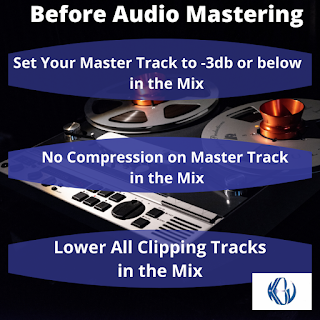New Subscription Audio Mastering Service

14 Songs Mastered per month $39.99 per month Analog Gear - Real Engineer - WAV Files - Corrections - Quick Turn-Around This is Kelvin Butler, owner of KBJ Records. As s fellow musician, I know that these are hard times for musicians. It is now March, 2020 and so far this year has not gotten off to a good start. People are now being quarantined indoors because of this bold new virus known as Convid - 19. Jobs are being closed and money is tight. I know that it is hard to create music while providing for yourself and loved ones. Subscription Analog Audio Mastering Service $39.99 per month Your music is our #1 priority so I have opened up the first official Subscription Audio Mastering Service that uses a real engineer. It is not an instant mastering service that uses robots or algorithms. It is a real mastering service with a real mastering engineer that you can purchase on subscription for the same price as one of those in...



